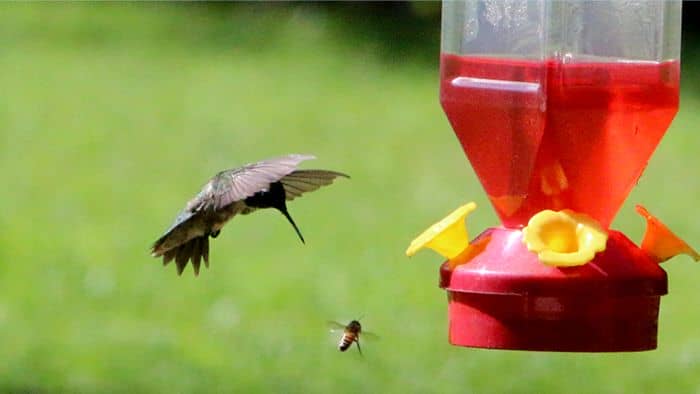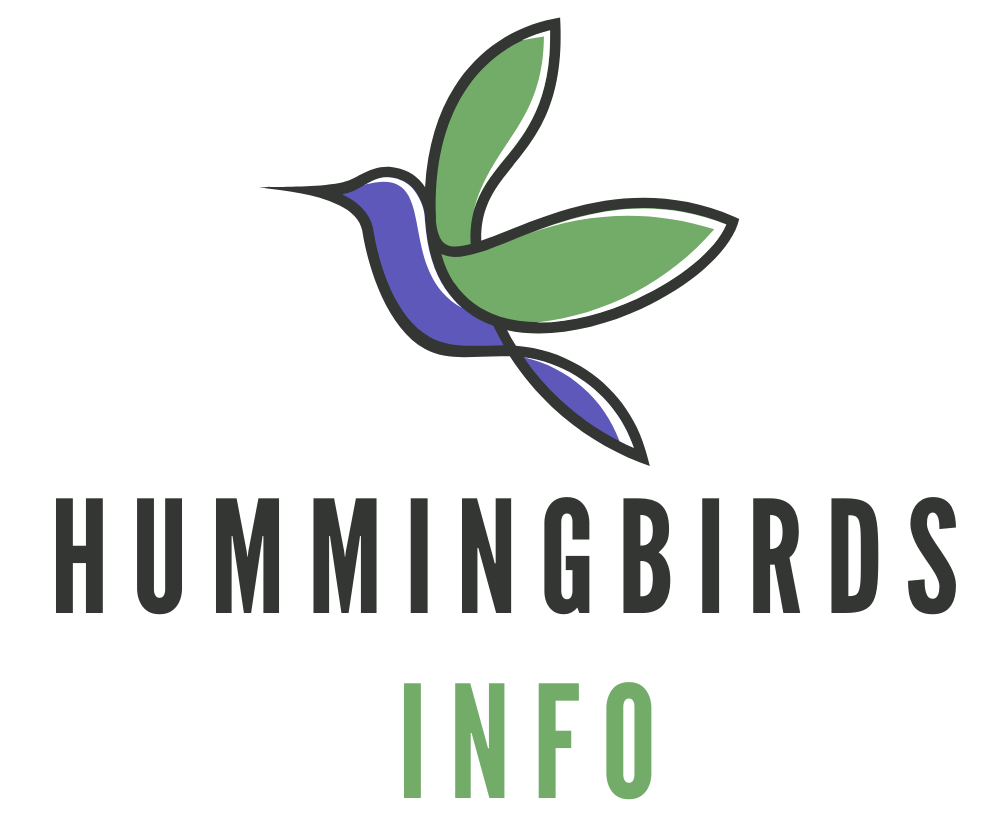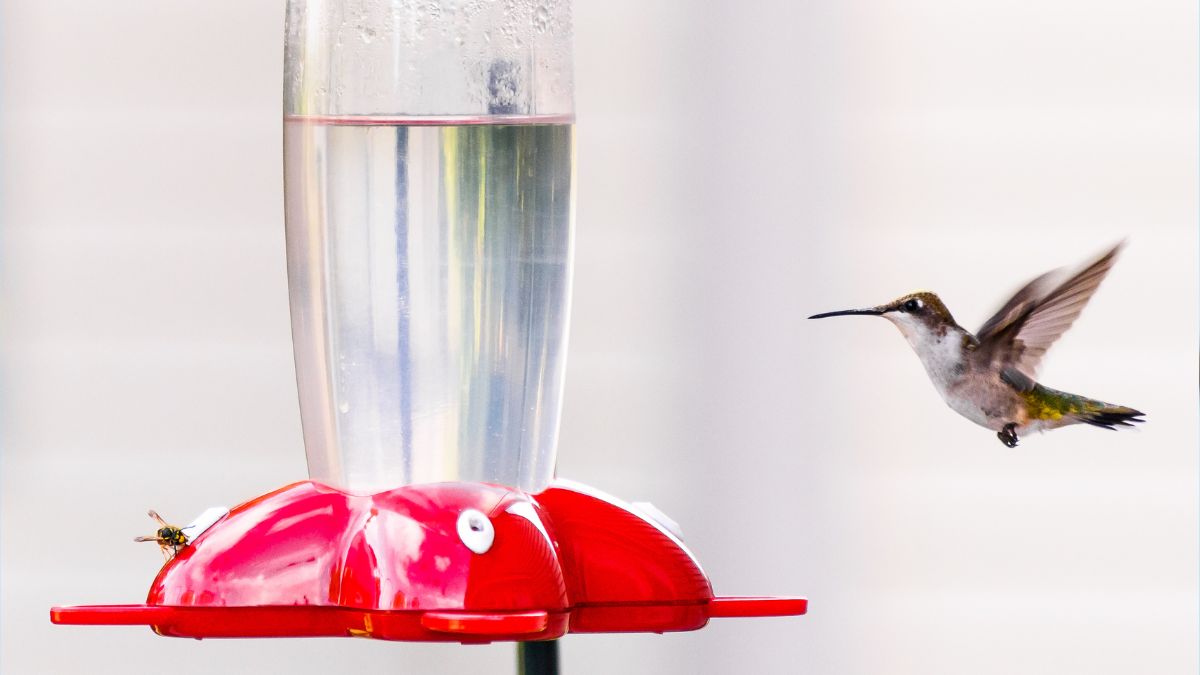Wondering do bees bother hummingbirds? Keep reading and find out the real truth about their “friendship”.
Currently, almost all of North America is covered with these beautiful creatures that gravitate to a variety of colorful garden flowers, such as lantana, bee balm, salvias, lupines, petunias, and zinnias, as well as the delicious nectar in hummingbird feeders. Unfortunately, the same sources attract bees, which along with ants and other insects are unwanted guests because they contaminate high-calorie sugary nectar in feeders.
A large percentage of people are worried because they are afraid that bees will compete with hummingbirds in feeders, that is, that there will be some form of fight. Have you ever wondered what exactly the truth is, do bees bother hummingbirds? Stay with us and find out the answer.
Why Are Bees Attracted To Hummingbird Feeders?
Before you find out the answer to the question: “do bees bother hummingbirds”, we will try to explain to you why they meet at all.
Just like all other creatures that buzz and hum, bees are just as strongly attracted to a sweet sugar solution. Where is this solution most often found? – In feeders intended for feeding hummingbirds. So, bees hang around feeders because their natural instincts tell them to.
Furthermore, they are not the only beings who adore this graceful liquid, besides them, there are wasps, hornets, ants, spiders, moths, and earwigs. You will not go wrong if you say that all these flying creatures have a sweet tooth. Without prior planning and the use of protection, your feeder will soon become a magnet for all kinds of hungry creatures.
The problem is not only that the bees drink nectar and empty the feeder, but also that when the hummingbirds notice the bees, it may mean that the hummingbirds will soon stop visiting the feeder completely.

Do Bees Bother Hummingbirds?
As we’ve said countless times, hummingbirds are the smallest birds in the world, smaller even than most insects, so it’s no surprise that they mostly feel like prey. So, do bees bother hummingbirds? We think this is the shortest and also the clearest answer – bees pose a significant risk to the delicate hummingbirds.
Bees are very capable and ready to attack hummingbirds, and worst of all is the fact that hummingbird’s slight body mass cannot absorb the vein. So, just one bee sting is enough to kill a hummingbird in an instant. That’s why experts advise you to definitely protect these fragile birds from a potentially deadly predator.
However, do your best to use natural remedies and methods instead of resorting to pesticides. Keep in mind that the bee population is decreasing and that in principle you will not achieve anything special, because pesticides kill hummingbirds as much as bees.
How To Keep Them Away From Each Other Without Causing Harm
Now that you know the true answer to the question, “do bees bother hummingbirds,” here are some completely safe ideas for keeping bees out of your hummingbird feeders.
- Try to get a saucer-style feeder because it will be difficult for the insects to reach the nectar.
- Use specialized bee guards to discourage them from drinking all the delicious nectar from the feeder.
- Red is the color that attracts hummingbirds the most, while on the other hand bees simply hate it. So paint the feeder in one of the red shades.
- Change the location of the feeder to confuse the bees.
- Avoid spilling nectar and close any holes through which nectar may leak.
- Change the ratio of sugar and water, bees like more sugar, so in spite of them, reduce it.
- Plant a variety of flowers that will attract the attention of bees instead of stealing nectar from hummingbird feeders.
- Try to get a bee-specific feeder in which you will put a solution prepared especially for bees (higher ratio of sugar and water). In case there are no feeders of this type near you, feel free to use just a shallow bowl.
- Clean and maintain the feeder regularly as this will minimize spilled nectar that attracts bees.
Click here to find out more.
To Wrap Things Up: Do Bees Bother Hummingbirds?
Truth be told, coexistence between these two flying creatures is a two-way struggle! Neither of them likes the other, and worst of all, a bee could kill a hummingbird with a single sting. Accordingly, the answer to the question “do bees bother hummingbirds” is positive.
Do everything in your power to make their lives easier, therefore, try to apply some of the instructions we have explained to you today.
Want to know more information about hummingbirds? Click here and find out the latest news about these unique flying creatures.
Related article: Are Female Hummingbirds Territorial? Here’s How They Compare To Males
FAQ’s
[rank_math_rich_snippet id=”s-f99ed9f6-6e3d-41e9-a6bc-da4fe126f867″]

